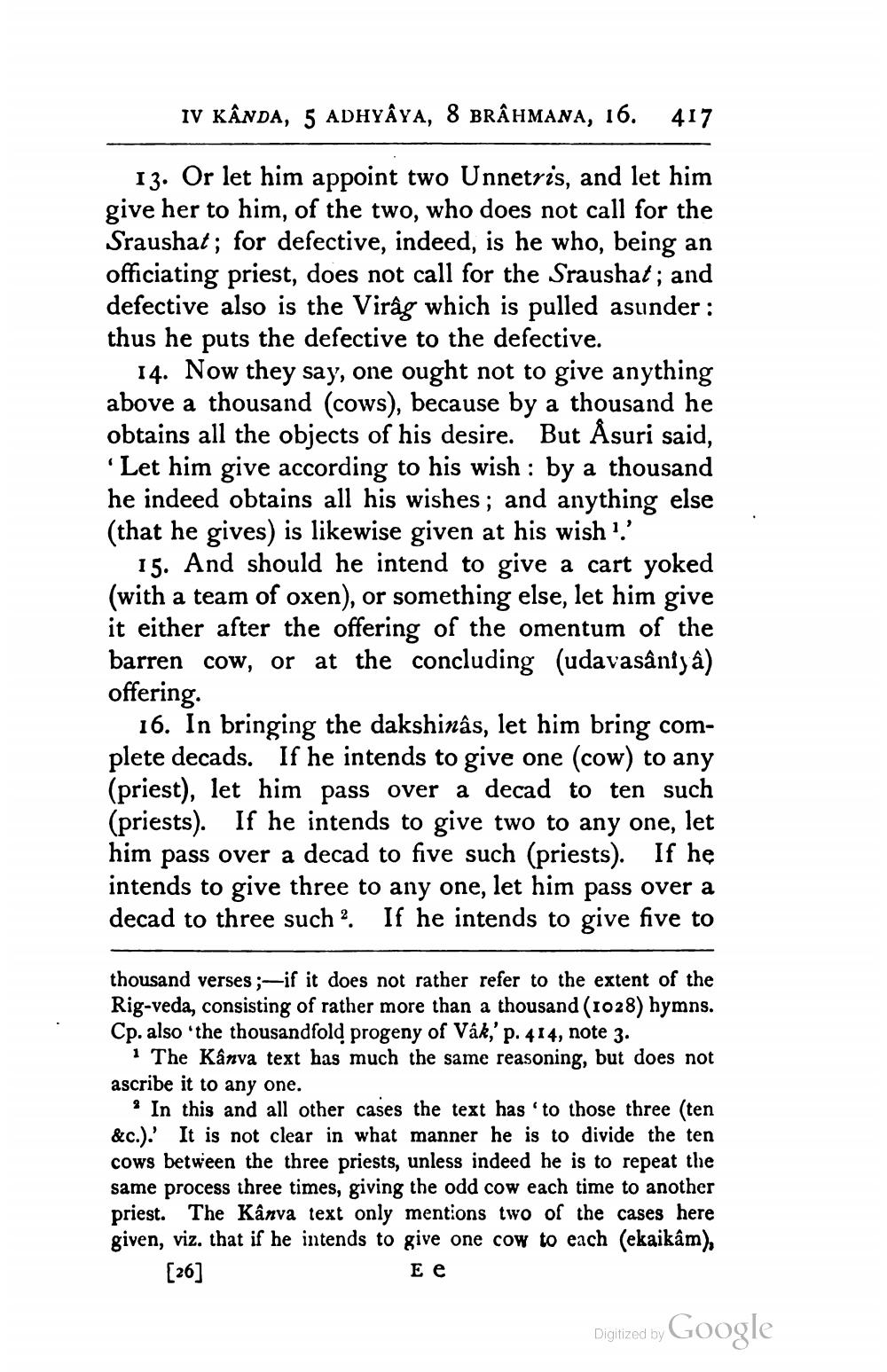________________
IV KÂNda, 5 ADHYÂYA, 8 BRÂHMANA, 16. 417
13. Or let him appoint two Unnetris, and let him give her to him, of the two, who does not call for the Sraushat; for defective, indeed, is he who, being an officiating priest, does not call for the Sraushat; and defective also is the Virag which is pulled asunder: thus he puts the defective to the defective.
14. Now they say, one ought not to give anything above a thousand (cows), because by a thousand he obtains all the objects of his desire. But Åsuri said, * Let him give according to his wish : by a thousand he indeed obtains all his wishes; and anything else (that he gives) is likewise given at his wish?
15. And should he intend to give a cart yoked (with a team of oxen), or something else, let him give it either after the offering of the omentum of the barren cow, or at the concluding (udavasâniya) offering.
16. In bringing the dakshinâs, let him bring complete decads. If he intends to give one (cow) to any (priest), let him pass over a decad to ten such (priests). If he intends to give two to any one, let him pass over a decad to five such (priests). If hę intends to give three to any one, let him pass over a decad to three such ? If he intends to give five to
thousand verses ;—if it does not rather refer to the extent of the Rig-veda, consisting of rather more than a thousand (1028) hymns. Cp. also 'the thousandfold progeny of Vák,' p. 414, note 3.
1 The Kanva text has much the same reasoning, but does not ascribe it to any one.
? In this and all other cases the text has 'to those three (ten &c.). It is not clear in what manner he is to divide the ten cows between the three priests, unless indeed he is to repeat the same process three times, giving the odd cow each time to another priest. The Kânva text only mentions two of the cases here given, viz. that if he intends to give one cow to each (ekaikām), [26]
Ee
Digitized by Google




